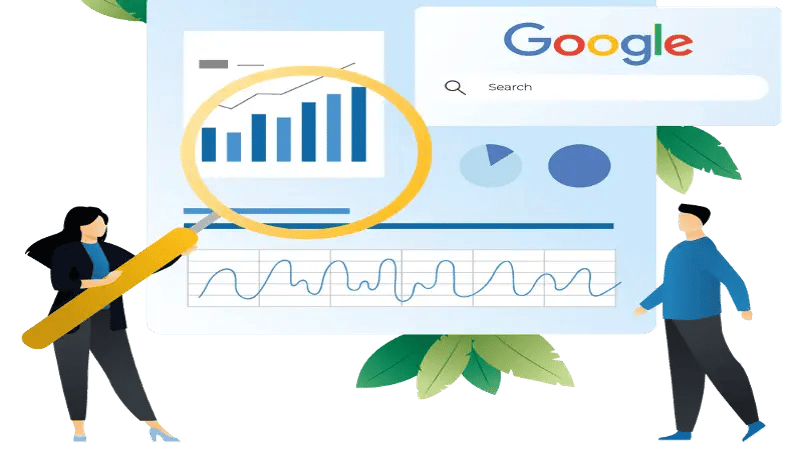Google's March 2024 Core Update Targets Low-Quality Content
Google's algorithm just got a significant upgrade! Their March 2024 core update and new spam policies mean one thing: it's time to ditch the shortcuts and focus on creating content that genuinely crushes it for your audience. We're breaking down the changes to allow you to future-proof your strategy and dominate those search results.

The March 2024 Core Update – Your Playbook
This update is significant. Google is not playing around with identifying high-quality content. Regardless of how content is being created, Google has never "outlawed" AI-generated content, Google continues to reinforce its "people first" approach and E-E-A-T Guidelines.
-
The Lowdown: If you're already focused on building unique, people-first content, you're golden. But it's never too late to take things up a notch. Get obsessed with what your audience needs and Google's algorithm will reward you.
The March 2024 core update is a more complex update than Google's usual core updates, involving changes to multiple core systems. It also marks an evolution in how we identify the helpfulness of content.
Just as we use multiple systems to identify reliable information, Google has enhanced its core ranking systems to show more helpful results using a variety of innovative signals and approaches. There's no longer one signal or system used to do this, and Google has also added a new FAQ page to help explain this change.
The rollout may take up to a month because this is a complex update. There will likely be more fluctuations in rankings than with a regular core update as different systems get fully updated and reinforce each other. Google will post to its Google Search Status Dashboard when the update is finished.
There's nothing new or special that creators need to do for this update as long as they've been making satisfying content for people. For those who might want to be ranked better, we strongly encourage reading Google's creating helpful, reliable, people-first content help page.
Busting the Spammers: Google's New Policies
Google is laying down the law to keep search results relevant to users. Here's a rundown of the tactics that'll tank your rankings:
-
Expired Domain Abuse: Don't think you can trick Google with old domains. Buying an expired site to host crappy content is a red flag. Build your reputation with fresh, original work.
Expired domain abuse is where an expired domain name is purchased and repurposed primarily to manipulate Search rankings by hosting content that provides little to no value to users.
For example, someone might purchase a domain previously used by a medical site and repurpose that to host low-quality casino-related content, hoping to be successful in Search based on the domain's reputation from previous ownership.
Expired domain abuse isn't something people accidentally do. It's a practice employed by people who hope to rank well in Search with low-value content by using the past reputation of a domain name. These domains are generally not intended for visitors to find them in any other way but through search engines. Using an old domain name for a new, original site designed to serve people first is OK.
-
Scaled Content Abuse: Churning out massive amounts of generic, AI-written articles won't fly anymore. Focus on quality, not quantity.
Scaled content abuse is when many pages are generated to manipulate search rankings and not help users. This abusive practice is typically focused on creating large amounts of unoriginal content that provides little to no value to users, no matter how it's made.
This new policy builds on Google's previous spam policy about automatically generated content, ensuring that we can take action on scaled content abuse as needed, whether the content is produced through automation, human efforts, or some combination of human and automated processes.
-
Site Reputation Abuse: Sneaking spammy content onto high-authority sites to boost your rankings? Google's got your number. Play fair, or pay the price.
Site reputation abuse is when third-party pages are published with little or no first-party oversight or involvement, where the purpose is to manipulate Search rankings by taking advantage of the first-party site's ranking signals. Such third-party pages include sponsored, advertising, partner, or other third-party pages that are typically independent of a host site's main purpose or produced without close oversight or involvement of the host site, and provide little to no value to users.
Google's new policy doesn't consider all third-party content a violation, only that hosted without close oversight and intended to manipulate search rankings. For example, many publications host advertising content that is intended for their regular readers rather than to manipulate Search rankings primarily. Sometimes called "native advertising" or "advertorial," this kind of content typically wouldn't confuse regular readers of the publication when they find it directly on the publisher's site or when arriving at it from Google's search results. It doesn't have to be blocked from Google Search.
Google's spam policies page lists illustrative examples of what is and isn't site reputation abuse. To avoid violating Google's spam policies, such content must be blocked from Google Search. To allow time for site owners to prepare for this change, this new policy will take effect starting May 5, 2024.
Your Winning Strategy
Double down on providing great value. Understand your audience's problems inside and out and solve them with the best content in your niche. That's how you stay ahead of the curve.
Need More Intel?
Hit up Google's resources for the full scoop on the update. Or better yet, reach out to us – our SEO team can help you level up your search game!
This content is also available in:
- German: Google's März 2024 Core Update zielt auf minderwertige Inhalte
- Spanish: Google Core Update Marzo 2024 contra el contenido de baja calidad
- French: Mise à jour Google Mars 2024 : Priorité au Contenu de Qualité
- Italian: Google Core Update Marzo 2024 contro i contenuti di bassa qualità
- Romanian: Google Update Martie 2024 vizează conținutul de calitate slabă
- Chinese: 谷歌 2024 年 3 月核心更新针对低质量内容

Joachim is a certified HubSpot trainer with over 13 years of experience in content marketing, strategy, website development, and SEO. He has implemented numerous large-scale, international growth marketing programs, including one with UiPath, which grew from a startup to a successful IPO on the NYSE. Joachim has special expertise in multilingual marketing and sales enablement projects, and he uses the latest AI technologies to help our clients.







Leave a Comment